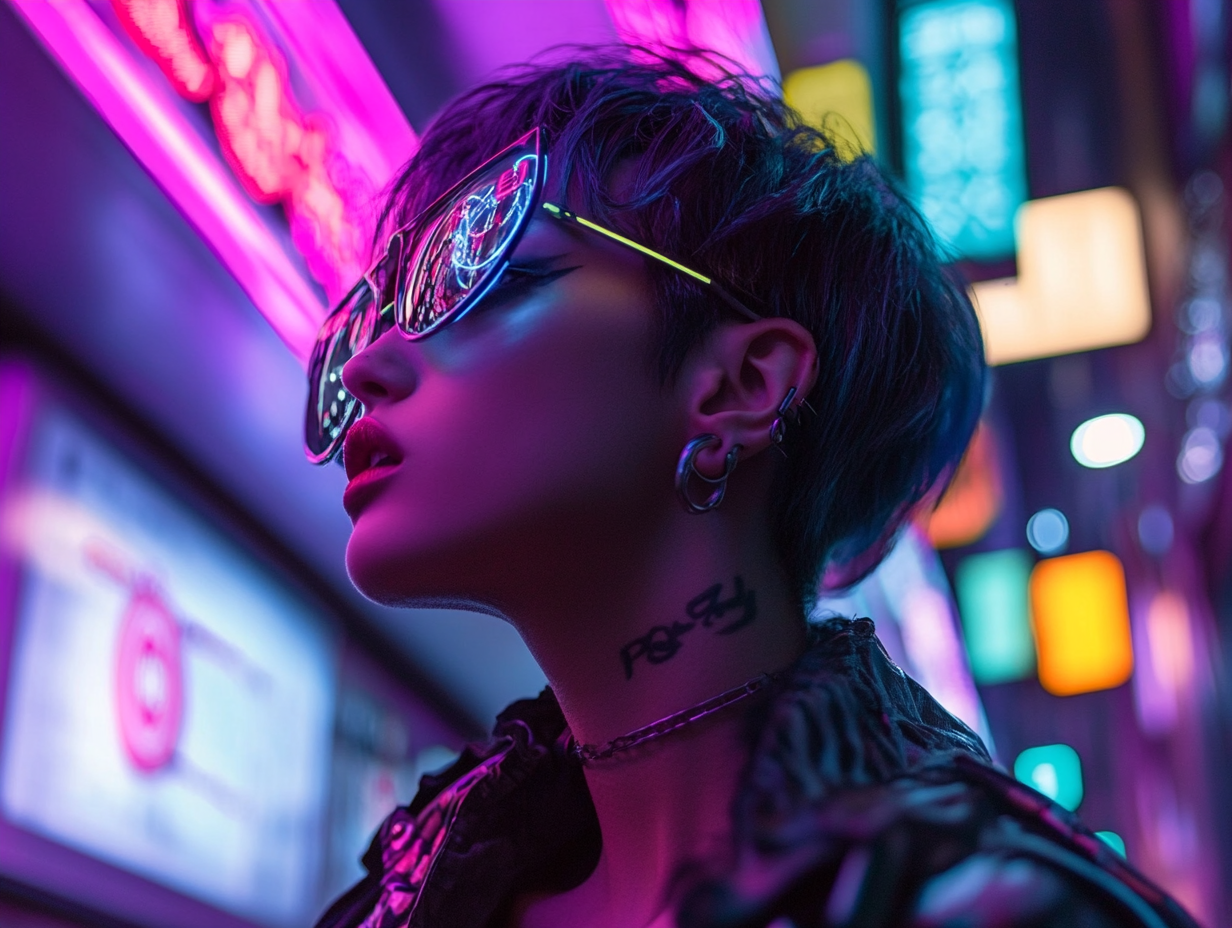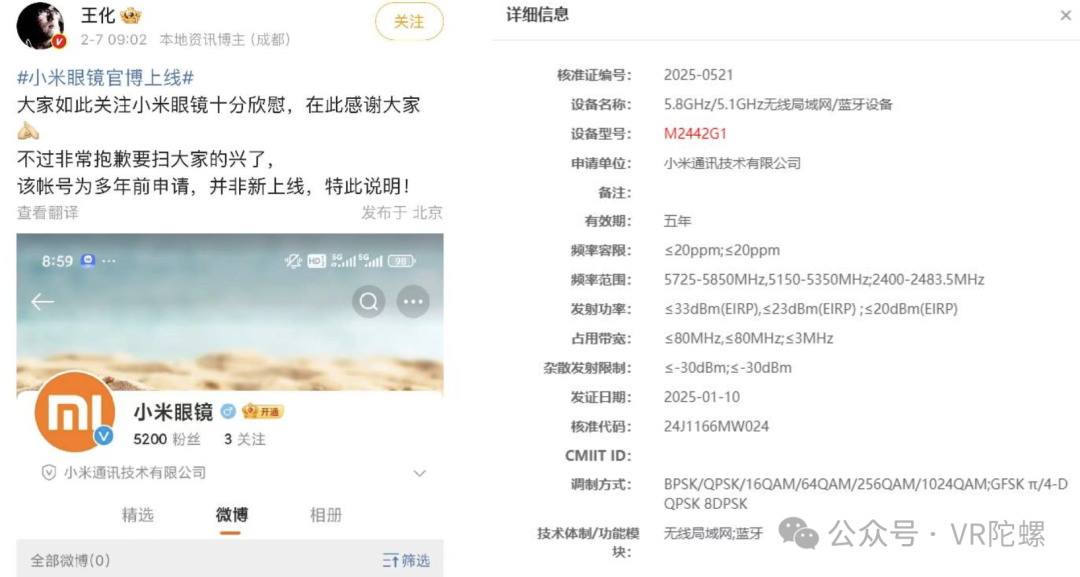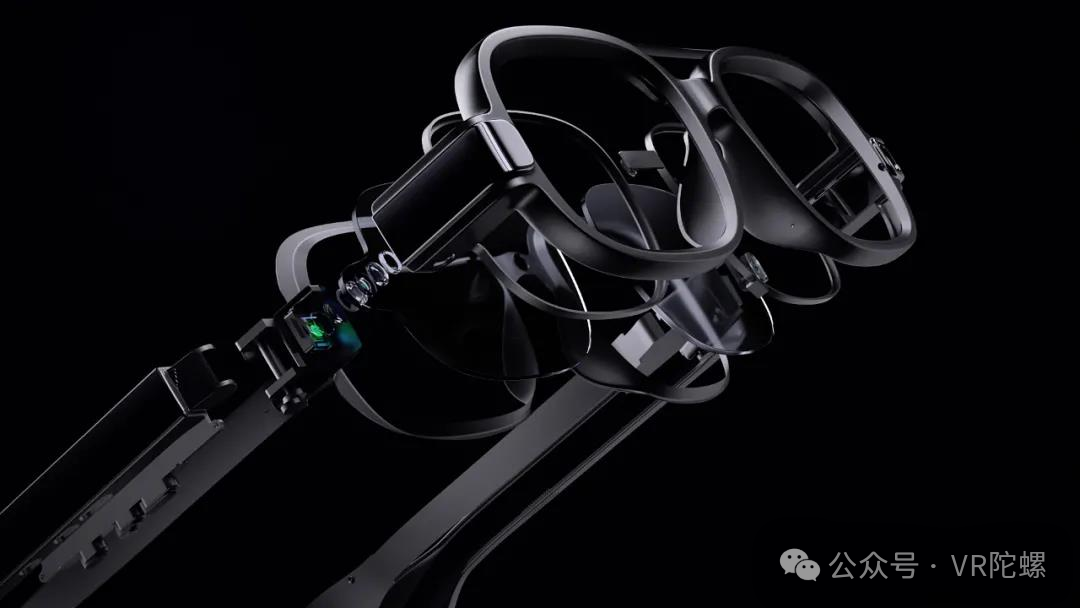 Image source: Generated by AI
Image source: Generated by AI
Following the Xiaomi SU7, Lei Jun will have a hit in the next era, and Xiaomi AI glasses are about to hit.
In 2024, the AI glasses market will be almost a year contracted by Ray-Ban Meta. With the collective efforts and flocking of China manufacturers, in 2025, AI glasses will usher in a concentrated product explosion stage.
Among these China manufacturers, Xiaomi is undoubtedly the most eye-catching one. Whether it is from Xiaomi’s own brand positioning, huge user base, complete market channels, or from Xiaomi’s experience in AI + hardware. It is true that the release of Xiaomi’s AI glasses is expected to push China’s AI glasses market to a higher level.
Xiaomi AI glasses are released soon, a market carnival triggered by “old accounts”
Xiaomi AI glasses will be released soon, and market news continues.
Although Wang Hua, general manager of the public relations department of Xiaomi Group, has recently urgently refuted the rumor, saying that “the official Weibo of Xiaomi Glasses was registered many years ago and is not newly launched,” this response has left more room for imagination for the market. It is not difficult to see from his very official words that Wang Hua did not directly deny the possibility of product release, but only emphasized that the account was not new online, suggesting that relevant progress may still be in progress.
In addition, during this period, the news that Xiaomi AI glasses had passed the network access license of the Ministry of Industry and Information Technology (model M2442G1) was also widely spread. However, Wang Hua did not respond to this, and seemed to have quietly explained everything.

In fact, as early as November 2024, there was news in the industry that Xiaomi and Goer had cooperated to develop a new generation of AI glasses, which were planned to be released during the rice noodle festival in the second quarter of 2025. Lei Jun expects the annual sales of Xiaomi AI glasses to be more than 300,000 units.
Top Jun learned from supply chain personnel last year that Xiaomi AI glasses may be divided into two versions: an AI glasses equipped with a camera module, and a basic version (or early beta version) with pure audio interaction, pointing to the mass market.
In addition, there will be some innovations in some designs of glasses to enhance the endurance of AI glasses. This strategy basically continues Xiaomi’s original 3C product gene of “extreme cost performance”, and also directly benchmarks Ray-Ban Meta in terms of product power.
Why did AI glasses become Xiaomi’s next incremental choice?
Xiaomi entered AI glasses to seek new market volume.
Xiaomi, which started as an Internet mobile phone, has developed rapidly since its establishment in 2010. Its latest data shows that its market value has exceeded one trillion yuan. It has officially entered the list of the world’s top 100 companies from “the youngest world’s top 500 companies”, surpassing Huawei, Panasonic, LG and other giants.
Behind the continuous growth of Xiaomi Group, on the one hand, it is naturally inseparable from R & D investment in various technologies and ecosystems with mobile phones as the core, and on the other hand, it is also inseparable from the “Xiaomi Grocery Store”. “Xiaomi Grocery Store” covers a wide range of IoT and consumer products, which occupy an important position in Xiaomi Group’s revenue. You can see a few things from Xiaomi Group’s third-quarter 2024 financial report data.
Xiaomi Group’s third-quarter 2024 financial report showed that its IoT and consumer products revenue reached 26.1 billion yuan, a year-on-year increase of 26.3%, and its gross profit margin was 20.8%, a year-on-year increase of 3.5 percentage points; relatively speaking, although smartphone revenue reached 47.5 billion yuan, the gross profit margin has dropped to 11.7%, down 4.9 percentage points year-on-year. In addition, the new smart electric vehicle business is also very conspicuous, with business revenue reaching 9.7 billion yuan, a month-on-month increase of 52.3%.
Therefore, today, as the smartphone market has peaked and gross profit margins continue to decline, continuously expanding the “one-party grocery store” with Xiaomi’s ecosystem as the core and increasing revenue and profits have become a must-have option for Xiaomi’s continued growth.

In the lineup of “Xiaomi Yifang Grocery Store”, the logic of consumer electronics products in the past almost always focused on mobile phones and Xiaoai slightly for ecological divergence. Combined with the current consumer’s growing demand for smart wearable devices and the in-depth application trend of AI technology on portable devices, AI glasses are undoubtedly the best choice.
AI glasses meet the strategic needs of Xiaomi’s business growth and the expansion of scenarios with mobile phones as the core.On the one hand, glasses, as the wearable device closest to human five senses, have natural advantages in information collection and AI voice interaction from the first-person perspective. Based on mobile computing power and AI cloud interaction, various diversified AI scenarios such as real-time translation, image recognition, intelligent search, and personal assistants can be expanded.
On the other hand, Ray-Ban Meta’s sales volume exceeded one million units in 2024, confirming the market’s demand potential for “lightweight AI glasses.” Currently, China’s AI glasses market is still in its infancy and has large room for growth. Research firm IDC predicts that global AI glasses market shipments will reach 12.8 million pairs in 2025, a year-on-year increase of 26%. Among them, shipments of China’s AI glasses market in 2025 are expected to be 2.8 million pairs, a year-on-year increase of 107%.
From the “AR Exploration Edition” to the implementation of “AI glasses”, Xiaomi has been gaining momentum for a long time
In fact, Xiaomi, like Meta, has long been deployed in AR technology for the next generation computing platform (excluding Mijia ecological chain products). As early as 2021, Xiaomi released an AR glasses concept product with Micro-LED+ diffractive optical waveguide; in 2023, Xiaomi also officially announced the Exploration version of Xiaomi Wireless AR glasses, based on Micro-OLED+ free-form surface optics.
In terms of technological maturity, the AR glasses products released by Xiaomi in previous years have been highly practical, and similar products from many startups can also be found on the market. However, Xiaomi is not in a hurry to commercialize. For large manufacturers, the opportunity cost of venturing into an industry may be too high before there are popular products.
It was not until the AIGC craze and the outbreak of Ray-Ban Meta that Xiaomi believed more firmly in this track. Although the AI glasses to be released in 2025 are a “simplified version” of AR glasses, with the support of generative AI, they can already bring many practical scenarios through voice and camera sensors. Moreover, more importantly, AI glasses are C-end products that Xiaomi believes can be completely commercialized.
For Xiaomi, AI glasses, like Meta’s layout ideas on smart glasses, can also be regarded as a transitional product for future AR glasses. Judging from market trends, the current demand for AI lightweight, portable, and efficient devices in the consumer electronics field is surging. AI glasses, with its preliminary exploration in voice interaction, first-person vision, etc., are in line with this development direction, laying the foundation for user awareness and technical application for moving towards the AR glasses market with more complete functions and more advanced experiences.

Xiaomi monocular AR glasses
In addition, it is worth noting that compared with ordinary startups, mobile phone manufacturers do have certain technical advantages in making AI glasses. As early as last year’s manuscript,”AI glasses| The supply chain is easy to enter, but high-scoring products are hard to find.”Top Jun has emphasized that for Ray-Ban Meta AI glasses,” audio “and” imaging “are the core sectors, and they are also the two most difficult sectors for glasses to make.
A simple “voice interaction” will involve the combination of a series of audio algorithms and hardware such as multi-Mic outsourcing and noise reduction. “Image shooting” is directly related to the reputation and market sales of a pair of glasses, and has to be paid attention to. Since there is no manual focus like mobile phones, AI glasses need to realize full automatic focus, automatic color, sensitivity optimization adjustment, etc. For start-ups, there is a lot of pressure. Among them, the choice of chips and the trade-off of cost are also very important.
For such noise reduction algorithms, pickup algorithms, imaging algorithms, and AI voice interactions, mobile phone manufacturers such as Xiaomi have already achieved technical precipitation and exploration on TWS headphones, smart slightly, and smartphones. Compared with startups, there are much fewer sections that need to be completed and debugged. At the software ecosystem level, they can also achieve system-level permissions and fully invoke the mobile phone ecosystem, which has strong technical advantages. In this way, we also look forward to what kind of technical differentiation Xiaomi’s AI glasses will make.
Xiaomi AI glasses, the trigger for the collapse of China’s AI glasses?
In 2025, the AI glasses track will be crowded with giants: Meta plans to launch 6 AI wearable devices within the year, and Samsung, Huawei, OPPO, Thunderbird Innovation, Xingji Meizu, Baidu, Rokid and other manufacturers are also eyeing. Faced with the “Hundred Mirrors War” in the global market, the release of Xiaomi AI glasses may be expected to trigger a catfish effect in the China market.
From the perspective of market structure, the current sales volume of AI glasses in China is much lower than that of overseas, but the industry is hot. From a marketing perspective, the domestic market has always lacked a phenomenal hit product like Ray-Ban Meta to enhance consumer awareness and enhance users ‘desire to purchase AI glasses.
Xiaomi’s own brand advantages cannot be underestimated. Over the years, Xiaomi has created legends in the hearts of consumers with its cost-effective products and rich ecological chain. Its huge user base has also provided a natural soil for the promotion of Xiaomi AI glasses.
Against this market background, the entry of Xiaomi AI glasses will undoubtedly further expand the market capacity of the domestic AI glasses industry and bring a larger incremental market.



